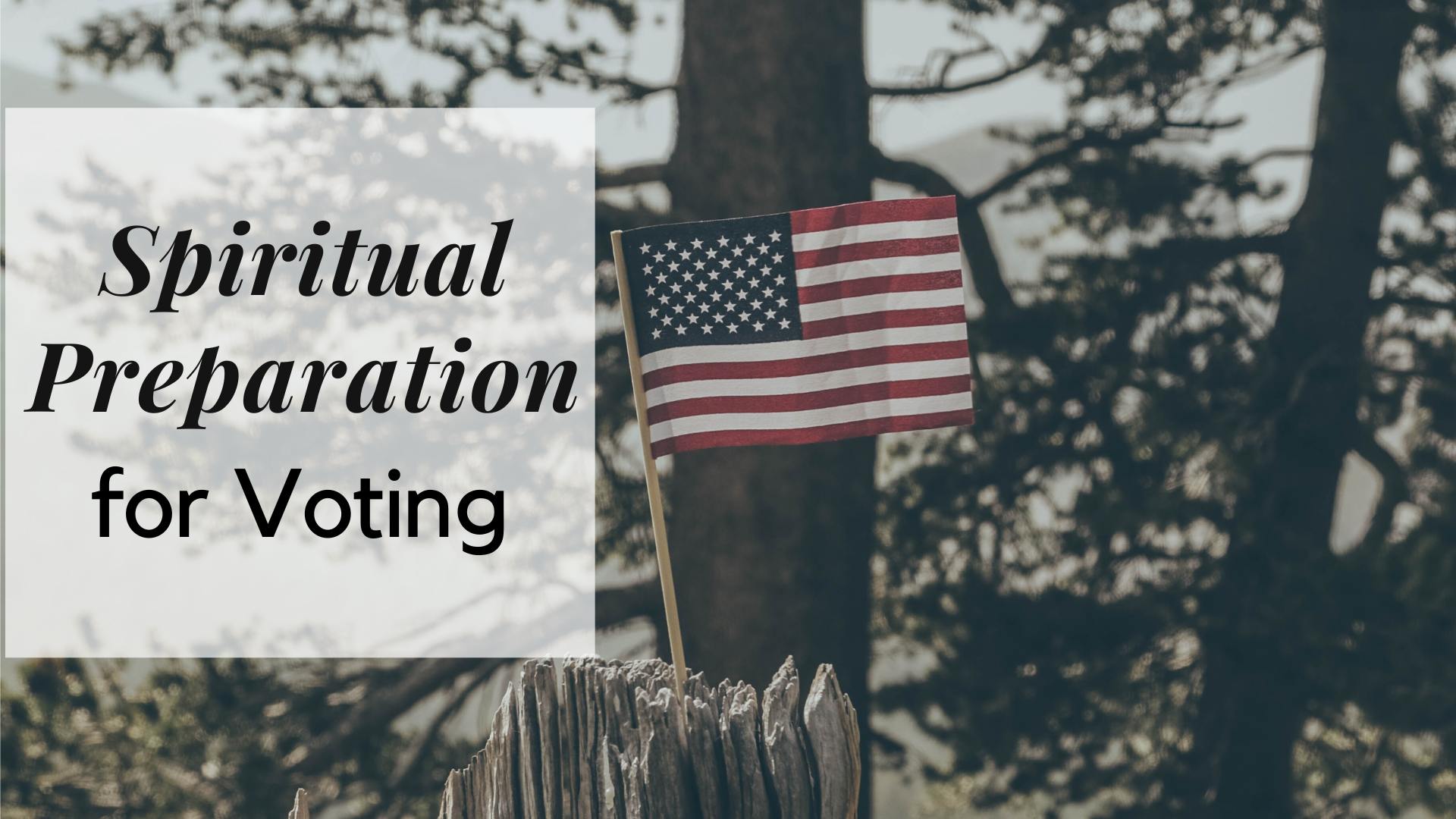
Election Day. It’s time to weigh the real-world consequences of our vote. It is also time to consider our spiritual obligations. I suspect that’s not something we often think about. But as Christians, we really should think about it. So, how do we make a decision about voting marked by thoughtful, deliberative, and spiritual preparation?
Here are some thoughts:
1: Don’t vote your fears or your anger.
Learn from them. Then vote. Although commentators are inclined to blame only one side or the other for voting out of fear and anger, in truth, there is plenty of fear and anger to go around. That’s not necessarily a bad thing. Fear and anger are useful emotions, if they are examined. They can alert us to problems, threats, and shortcomings.
Both emotions can also be a sign that things are out of order or that values have been compromised and problems ignored. But the content of those emotions needs to be examined to arrive at useful conclusions. As is the case in our personal lives, when we vote from unexamined anger and fear, we deepen divisions, and we often act in ways that erode our own best interests.
Before voting ask yourself:
- “What do I fear?”
- “Why am I afraid?”
- “What is making me angry?”
- “Why am I angry?”
- “If I can name the reasons for my fear and anger, can I then identify a thoughtful, measured solution that accords with the political views of a candidate running for office?”
2: Vote your values, but don’t demand that others absolutely share them.
Life in community always requires compromise. It’s a function of life in a democratic society. More deeply, that freedom to choose and to compromise reflects the freedom God gives each of us.
Preparing to vote requires that each of us own our views and craft them with care. It also means that those who disagree with us have the same right and responsibility. The hardest part of the democratic process is living with people who disagree with us. It is also the place where democracy is most in evidence.
3: Distinguish between character assessment and character assassination.
One of the most divisive and destructive dynamics in American politics is the character assassination that has become the standard fair of political speaking and advertising.
Virtue is an inescapable component of leadership and it ought to be a part of the political calculus. Candidates who lie, cheat, and adjust their views only to garner votes are neither reliable, nor competent to lead.
But the muckraking that has become so common in American politics has little or nothing to do with the cultivation of virtue, and character assassination says more about the candidate who uses that strategy, than it does about the object of his or her attack.
4: Distinguish between criticizing ideas and judging people.
We can and should be critical of the candidates’ ideas and policies. They are fair game for criticism, and they should be the object of close scrutiny and analysis. We should be able to hear fair criticism of our candidate’s views. Weighing those views and holding elected officials accountable for their views is the responsibility of every voter.
5: Distinguish between the needs that government can address and the needs that only God can address.
We will all define the role of government in different ways, but there are real and absolute limits to what government can do or accomplish. Our government is also every bit as fallible as any other institution.
Voting involves asking ourselves about the differences between what can and can’t be accomplished by our leaders. It is no substitute for taking responsibility for our own lives and for the needs of our neighbors.
6: Look beyond your needs. Consider others. Consider the future. Measure all three against the realities of governance.
We often criticize our leaders for a lack of responsibility and accountability, but their behavior is often shaped by our own. Polling has created a political climate in which politicians trim sail and shape their campaigns in reaction to our demands and desires.
If those polls reflected a determination to look beyond our own needs to the needs of others and the future, we would get a different kind of candidate. If we measured all three priorities against life’s realities, we would also get a different kind of campaign.
7: Pray. Pray for objectivity. Pray for selfless attention to the well being of those around you and those who will follow us. Pray for humility, wisdom, and perspective.
This last task is the most difficult, if we take it seriously. It is not a matter of blessing our own political prejudices. It is a matter of quiet, modest self-examination in God’s presence, and with God’s help.
Without that kind of prayerful self-examination, our own spirituality becomes no more than a thin benediction over views shaped by other values.
Written by Rev. Bill Schram, 2018




